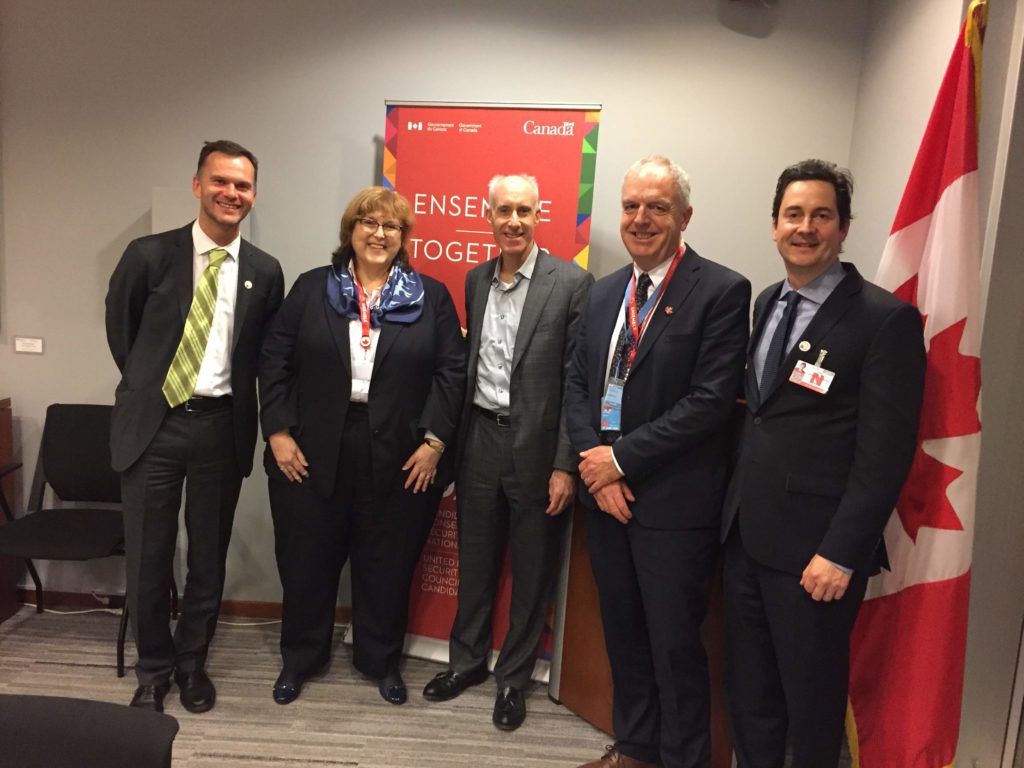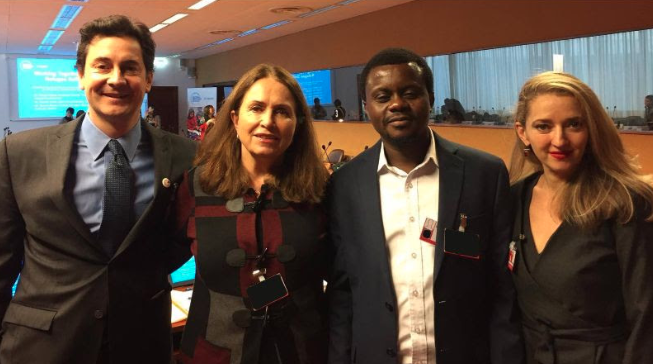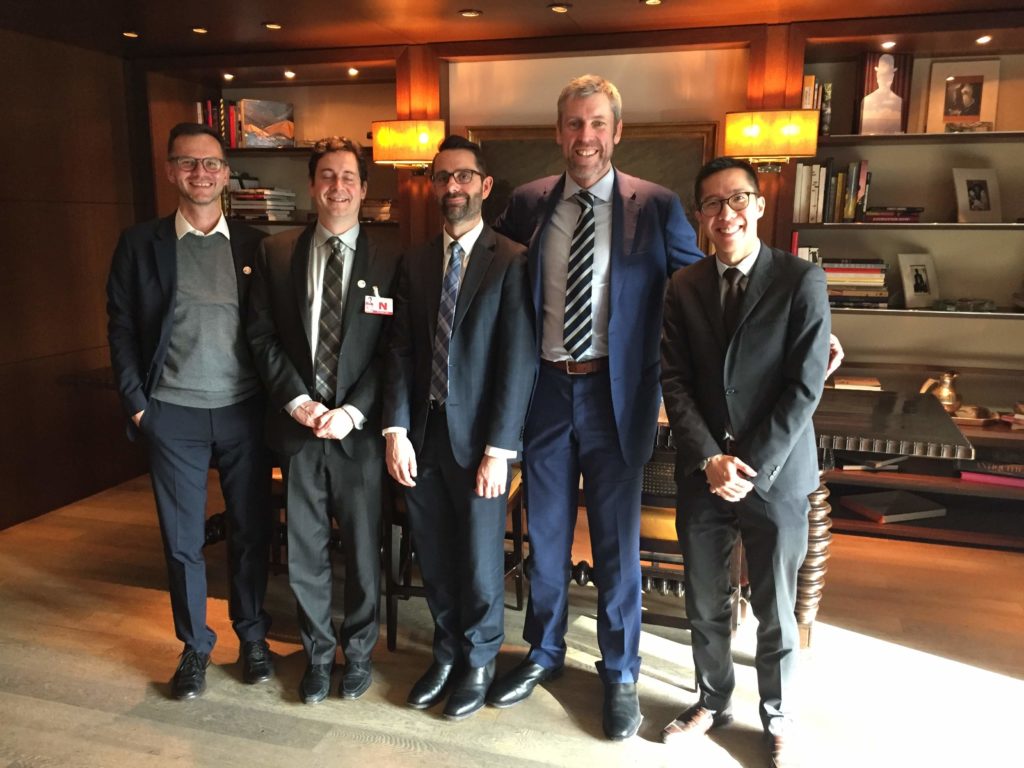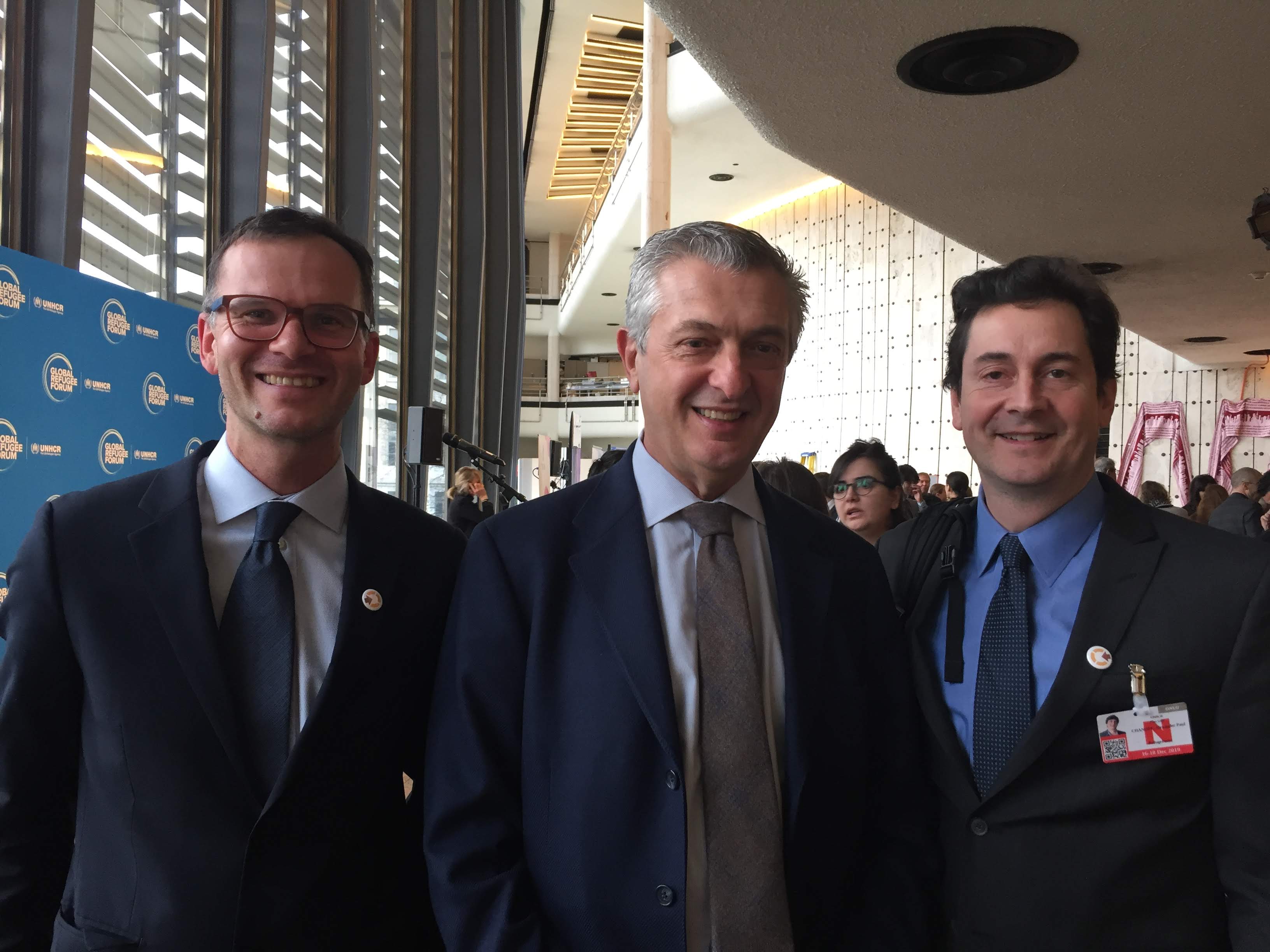RefugePoint’s Executive Director, Sasha Chanoff, and Director of International Programs, Marty Anderson, had the pleasure of speaking with Filippo Grandi, the UN High Commissioner for Refugees after he gave opening remarks at a breakfast reception for NGOs & civil society at the Global Refugee Forum in December 2019.
From December 16-18, 2019, RefugePoint participated in the Global Refugee Forum (GRF) in Geneva, Switzerland. The goal of the Forum was to bolster the international response to refugee situations. Guided by the Global Compact on Refugees (GCR), the GRF was an opportunity for the international community to pledge collective action and announce bold, new measures to enhance refugee self-reliance, and search for solutions.
The Forum is the most significant refugee-related policy gathering in over 50 years.
It brought together government leaders, businesses, international organizations, experts, civil society, and refugees to review progress towards the objectives of the Global Compact on Refugees (GCR) and to pledge further collective action.
RefugePoint made two joint pledges, and co-hosted a spotlight session about refugee self-reliance with the Refugee Self-Reliance Initiative (RSRI) and Women’s Refugee Commission on December 16.
The first pledge that RefugePoint made, in partnership with Focusing Philanthropy, is to provide resettlement and complementary pathways casework capacity in priority situations in Africa and the Middle East. Complementary pathways refer to safe and regulated avenues by which refugees may be admitted in a country and have their international protection needs met. This will lead to approximately 500 additional refugees being referred for third-country solutions each year. RefugePoint is also pledging to help ensure that resettlement and complementary pathways are available to those refugees who need them most, such as unaccompanied, separated and at-risk children. Staff will also assess gaps in local case processing systems and to provide training and other capacity-building activities for approximately 125 UNHCR, government, and partner staff each year, in order to ensure long-term improvement and impact.
The second pledge that RefugePoint made, in partnership with the Refugee Self-Reliance Initiative (RSRI), is that the RSRI will reach 250,000 refugees with self-reliance programming over the next two years, through the work of 5-10 partner agencies in at least five countries.
This pledge will contribute to the overall objective of the RSRI to reach five million refugees in five years with self-reliance programming. The RSRI will also provide technical assistance to humanitarian organizations on measuring the impact of their programs on refugee self-reliance through the use of the RSRI-developed Self-Reliance Index. RSRI partners will advocate for enabling environments conducive to achieving self-reliance and the full realization of refugee rights. Partners will also support advocacy through research that emphasizes the benefits of and pathways to self-reliance.
The December 16 spotlight session was co-hosted by RefugePoint, the RSRI, and the Women’s Refugee Commission, and focused on refugee self-reliance. Self-reliance involves stabilizing refugees in the countries to which they have fled and helping them regain the ability to meet their own essential needs. Participants discussed what self-reliance means to refugees and how key stakeholders can work to facilitate self-reliance to ensure successful refugee outcomes. The session was moderated by Self-Reliance Initiative Lead Kellie Leeson. Panelists included refugee leader Robert Hakiza (Executive Director, Young African Refugees for Integral Development), Mr. Tadashi Yanai (CEO of Fast Retailing, UNIQLO), and Mr. Roman Alberto Cepeda González (Secretary of Labor in Coahuila, México).



